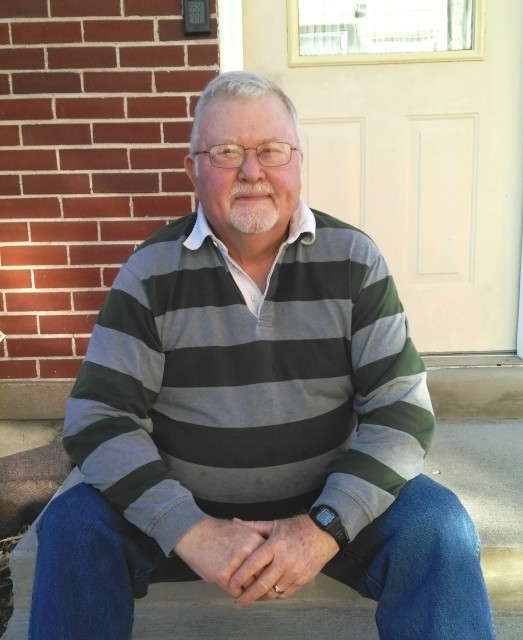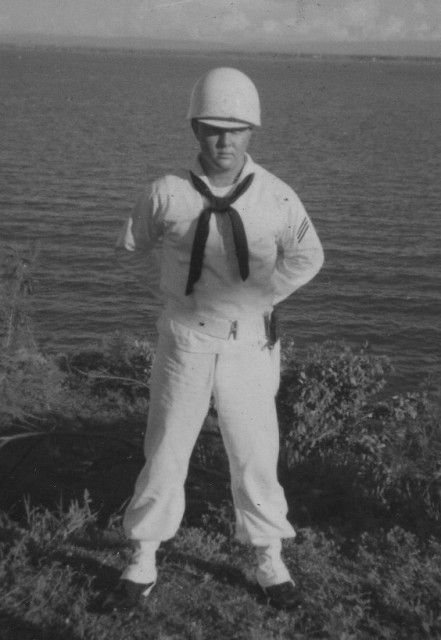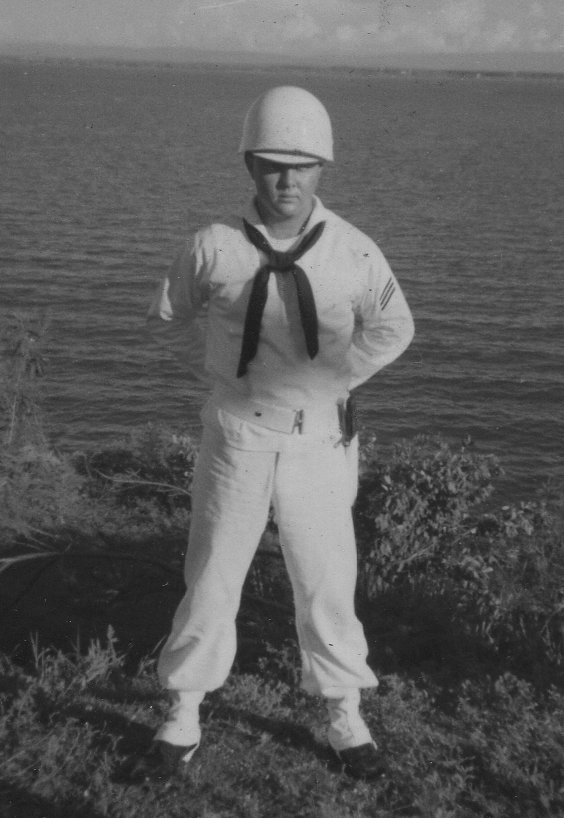By Jeremy P. Amick
The 1960s was a decade seasoned with many unique cultural events including the civil rights movement and the deployment of thousands of men and women in support of the Vietnam War.

Yet the shadow cast by these transformations often screens one important aspect of the decade; a prolonged event that left many Americans concerned with the mounting threat between two nations that had been allies less than two decades previous.
“They were ready to go at it in a big way,” said local veteran Winiford “Winnie” Lewis, 73, Taos, Mo., while discussing the military posturing of the United States and the former USSR during the Cold War.
Born in St. Louis, Lewis’ family later moved to central Missouri, from where he went on to graduate from Vienna High School in 1960.
With a “job situation that wasn’t good” in his rural community, combined with the influence of an uncle who had served in the Navy, Lewis made the decision to embark upon his own military journey.
Following his enlistment in the Navy, Lewis completed bootcamp at Great Lakes, Ill., and transferred to his first assignment with the naval station at Yorktown, Va. It was here he was introducted to the concept of “top secret and highly classified” work involving military weapons.
“Though I won’t divulge the full-range of duties we peformed at Yorktown,” Lewis said, “I really enjoyed my time there because the liberty was great and the area was ripe with history of the battles that helped free our country from British rule.”
After one year in his East Coast assignment, Lewis was sent to Guantanamo Bay, Cuba, in early 1962. Throughout the next two years, he performed a range of interesting duties, many of which—he later discovered—involved defensive measures meant to mitigate a potential threat.

Initially, Lewis worked for an air rescue service that would respond any time a plane crashed into the ocean. The sailor later supported a seaplane squadron that patrolled for Russian ships believed to be smuggling nuclear weapons onto the island.
In October 1962, the U.S. learned of Soviet missiles located on Cuba, which resulted in a 13-day standoff between the two countries. Many believed the face-off between the superpowers might lead to an armageddon delivered through the exchange of nuclear missiles.
During this timeframe, Lewis recalls a flurry of activity around the small island, which lies only 90 miles from mainland United States.
“The Marines were being shipped into Cuba by the thousands at that time,” said Lewis, “and I was assigned to transport supplies and equipment to them.” He added, “There was about three weeks that I was hauling for what seemed like 24/7.”
Lewis also notes that because of the increased tensions, he and other sailors were required to serve as a “base defense,” spending time in foxholes in the hills of the island.
But as history demonstrates, the “Cuban Missile Crisis” came to a end when President Kennedy and his Soviet counterpart Nikita Khrushchev arrived at a compromise—the Soviet Union withdrew its missiles from Cuba while the U.S. agreed to remove its missiles from Turkey and to not invade Cuba.
As the strain from the standoff subsided, Lewis notes “one huge sigh of relief” passed across Guantanamo Bay as the base was restored to a sense of normalcy, allowing him and his fellow sailors to enjoy recreational activities such as snorkeling.
The young sailor’s tour of duty came to a close in late summer 1963, heralding his return to the United States and his discharge from the Navy.
The following year he was married to Doris, his fiancée from Freeburg—and the couple moved to St. Louis where Lewis spent the next several years as a patrol officer with the St. Louis Police Department.
“We finally reached the point that we had enough of the big city and decided it was time to come back (to central Missouri),” Lewis smiled.
Following his return in 1969, he was briefly employed with the Department of Corrections before he was hired by the Jefferson City Police Department the following year. He retired from the police force in 1997 after 27 years as a patrolman.
Though Lewis affirms the military helped instill in him a “good sense of responsibility” and the ability “to take orders,” it is his participation during an intense moment of Cold War history that has become permanenty embedded in his memories.
“When I was in Cuba, I really had no idea just how close we were to cooking the world (with nuclear missiles) until I came back home and heard all of the news reports.”
Grinning, he added, “But I knew something was going on with all of the Marines that were pouring onto the base. Then again, I always felt that the less I knew … the better off I was.”
Jeremy P. Ämick writes on behalf of the Silver Star Families of America.
Jeremy P. Ämick
Public Affairs Officer
Silver Star Families of America
www.silverstarfamilies.org http://www.silverstarfamilies.org Cell: (573) 230-7456
